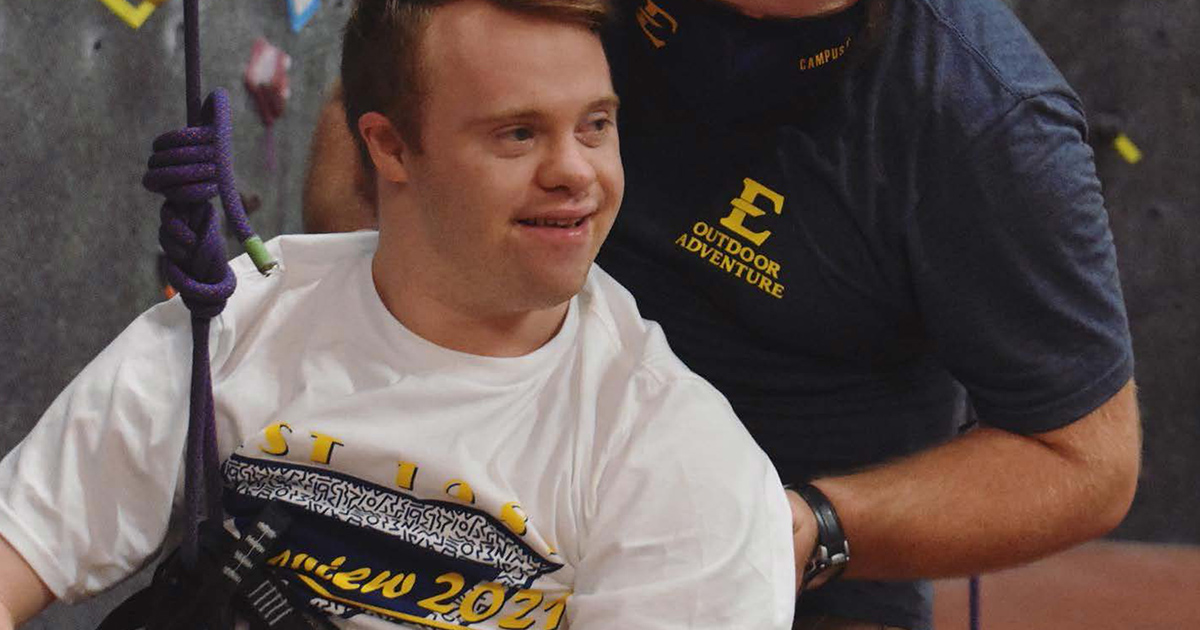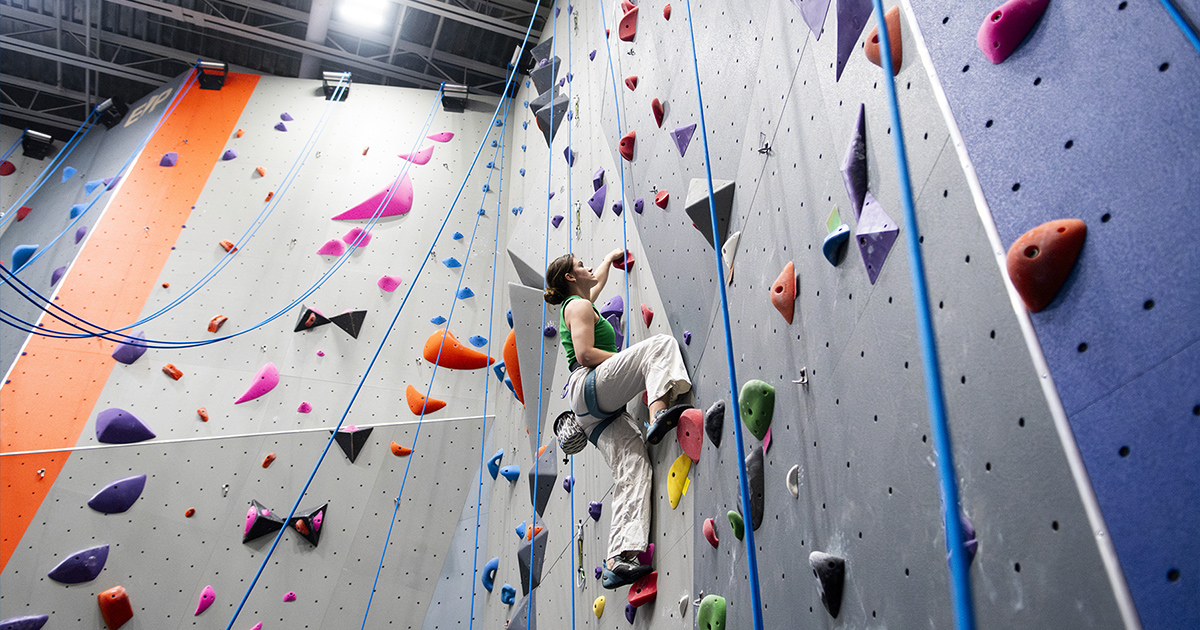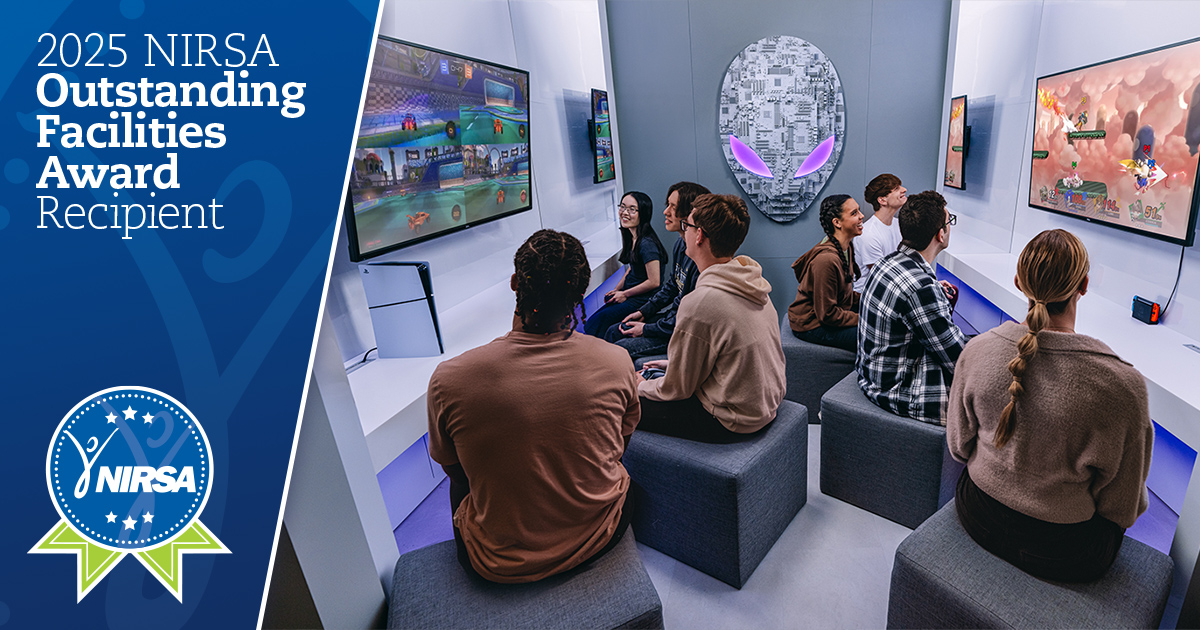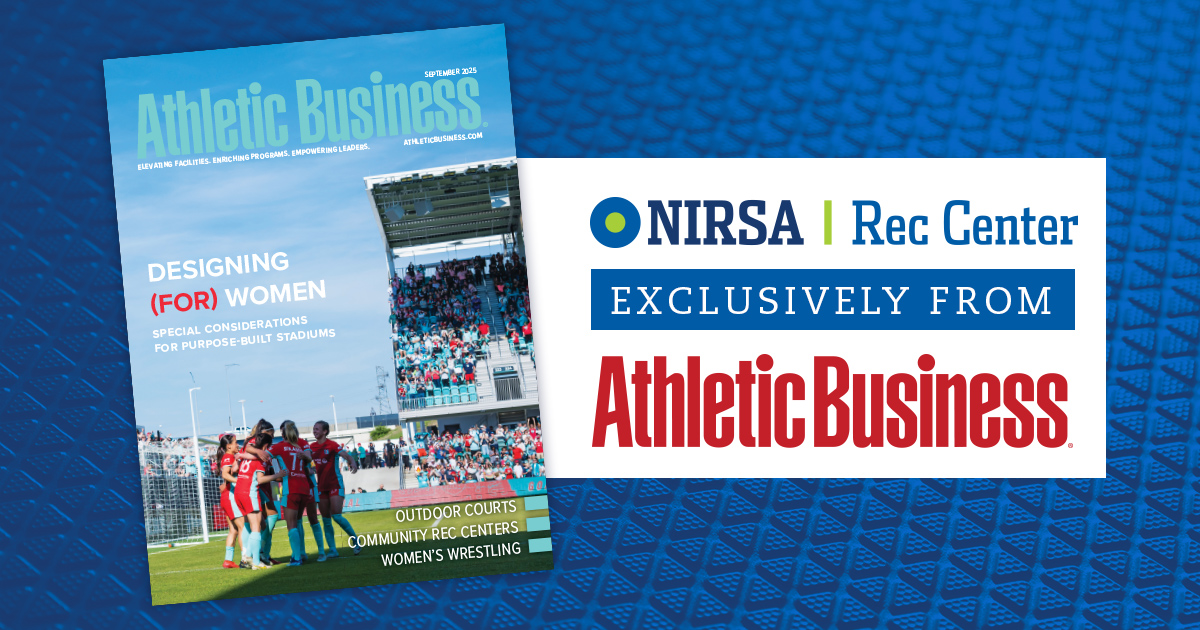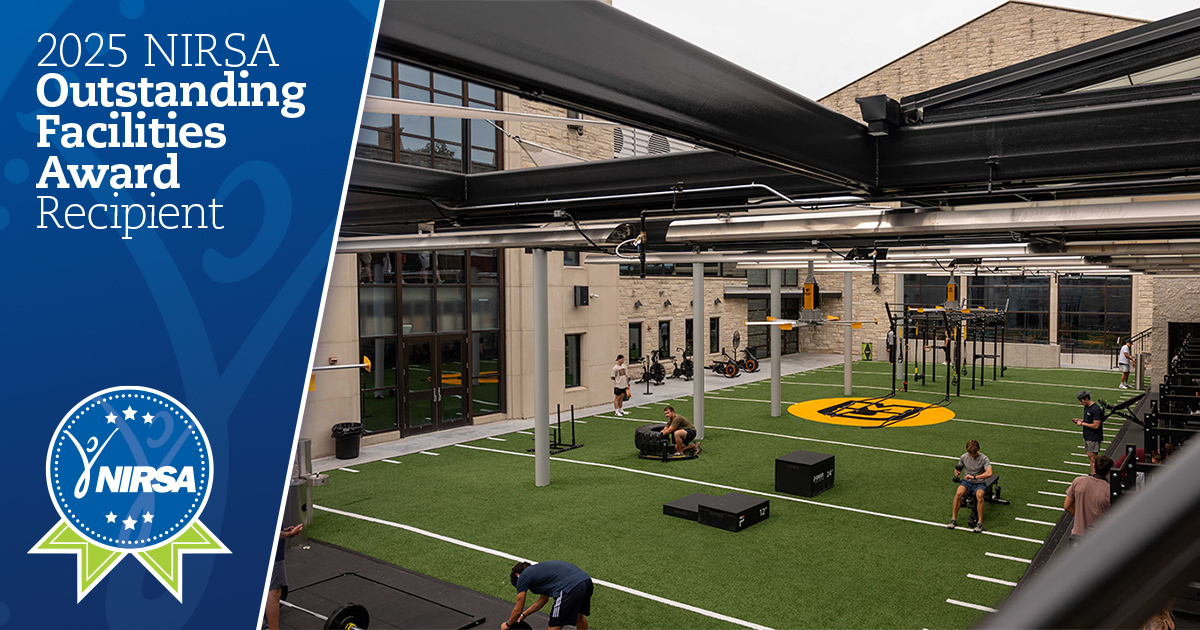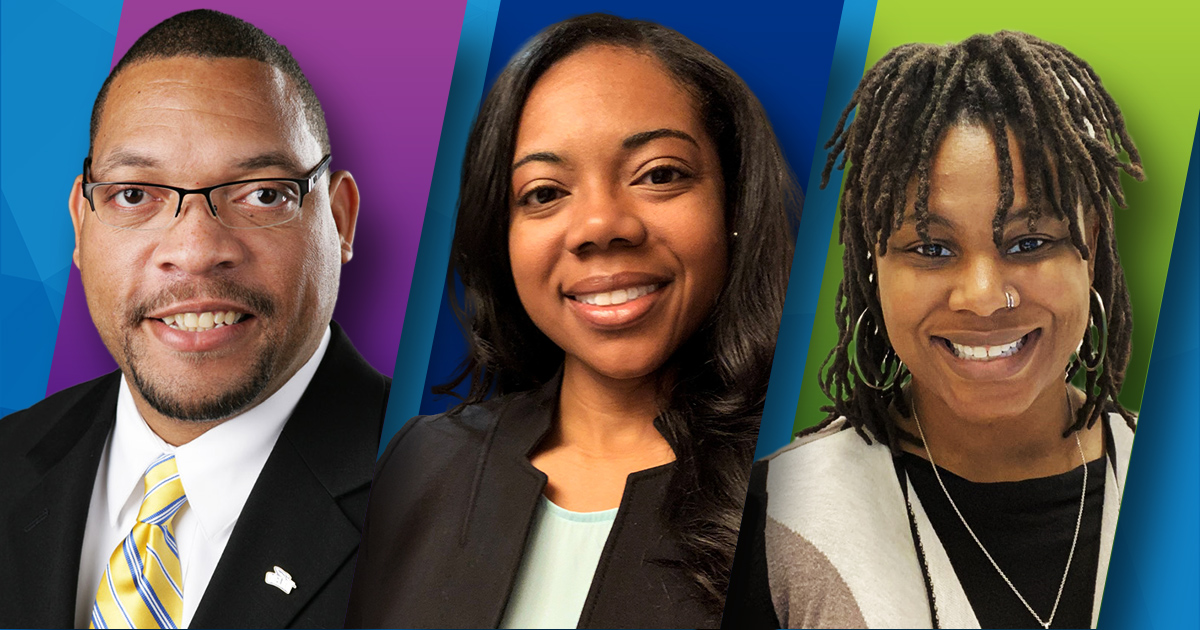Not all sparks bring fire, just as not every seed will grow to bear fruit. Bringing into practice the values of equity, diversity, and inclusion takes vision, dedication, and fortitude. And NIRSA loves to celebrate the important milestones of members who are working to build more just communities through campus recreation. So, we applaud Garrison Buchanan on his recent graduation and hope to highlight for NIRSA members the role that the campus recreation team at East Tennessee State University (ETSU) played in making his experiences with Access ETSU—a unique academic program connecting students with intellectual disabilities to higher education and job opportunities—so rich.
About Access ETSU
Access ETSU is an inclusive postsecondary education program at East Tennessee State University; the two-year, individualized track provide young adults with intellectual disabilities a college experience that’s consistent with those of similarly aged peers. Students who join the program participate in all typical campus academic and student life activities. They also engage in high quality and fully inclusive work-based learning experiences aligned with their career interests, strengths, and needs.
Beyond the learning that takes place in classrooms, the work-based learning experiences are a big part of the Access ETSU program. And campus recreation has been at the forefront of what now involves robust cross campus collaborations that now count the East Tennessean—ETSU’s campus newspaper—the ETSU theater department, the paleontology lab, grounds maintenance, and Sodexo catering in addition to the ETSU campus recreation department. They have all been among the campus partners who have stepped up to support the program.
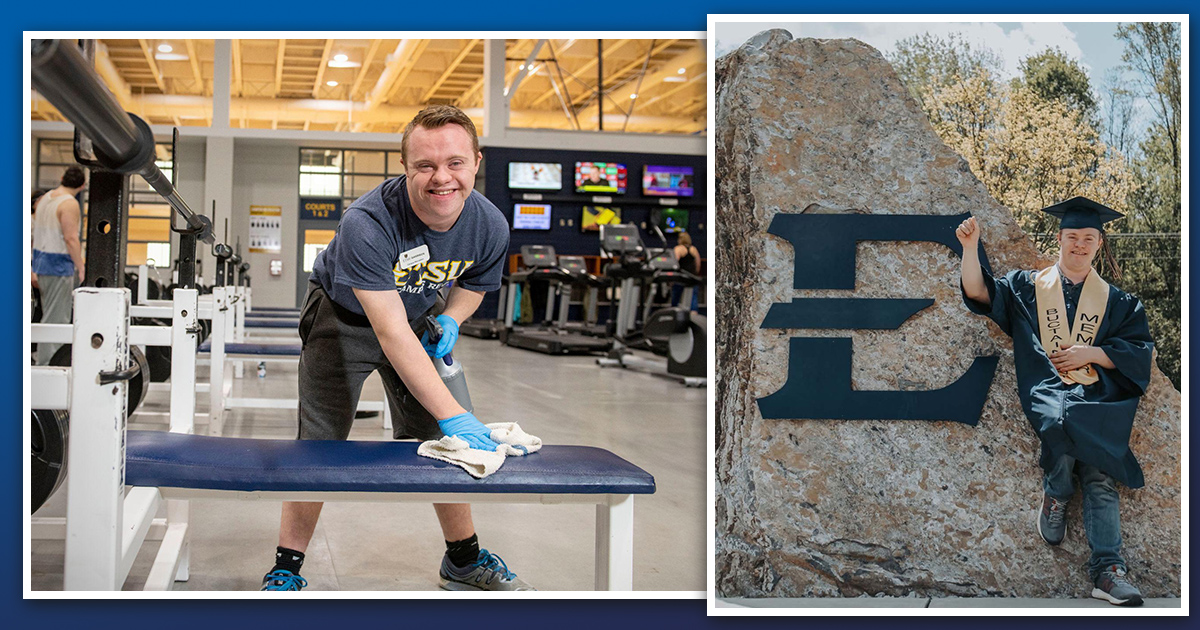
Campus recreation’s role
Like at many colleges and universities, student wellness is a priority for the Division of Student Life & Enrollment and the Student Government Association at East Tennessee State University. New solutions, promising practices, and integrated approaches are supported by the university through ongoing staff professional development.
In 2019, at the NIRSA Annual Conference & Campus Rec and Wellness Expo in Boston, members of the ETSU Campus Recreation staff team—including Director of Campus Recreation Kari Albarado—were inspired by a keynote address by Tim Shriver, Chairman of the Special Olympics and disability rights activist, who called on campus recreation professionals to create accessible programs on their respective campuses.
After the conference, Kari’s team had a chance connection with two faculty members in ETSU’s Educational Foundations and Special Education Department. Dr. Dawn Rowe—whose research focus includes transition services and supports for secondary youth with disabilities and evidence based practices in secondary transition—and Dr. Cynthia Chambers—whose research focus includes community inclusion and family-professional partnerships—approached Kari and shared the concept for Access ETSU that they would be starting. “Dr. Rowe and Dr. Chambers inquired if our team would be willing to partner with the program as a work-site for the first Access ETSU student, Garrison,” says Kari. “Garrison had a strong interest in sports and recreation and felt that campus recreation could provide a work environment related to his interests and to his area of study in sport management.”
It’s about the students
The team saw the partnership as a great opportunity to bring its value of inclusion into practice. And it’s been working out great. “For campus recreation, we view our partnership with Access ETSU as having a positive impact on both inclusion and wellbeing. Our goal is to not only offer employment, but to offer opportunities to participate in our programs such as intramural sports, outdoor adventure programming, aquatics programming, and informal recreation,” says Kari.
Providing paid employment in an environment that is focused on student development and the attainment of transferable skills is a core value of ETSU’s campus recreation department. “When I met with Dr. Rowe and Dr. Chambers,” says Kari, “I could see their vision for how this program could be impactful to campus and to our community, but most of all how we could impact the lives of the students of the program.”
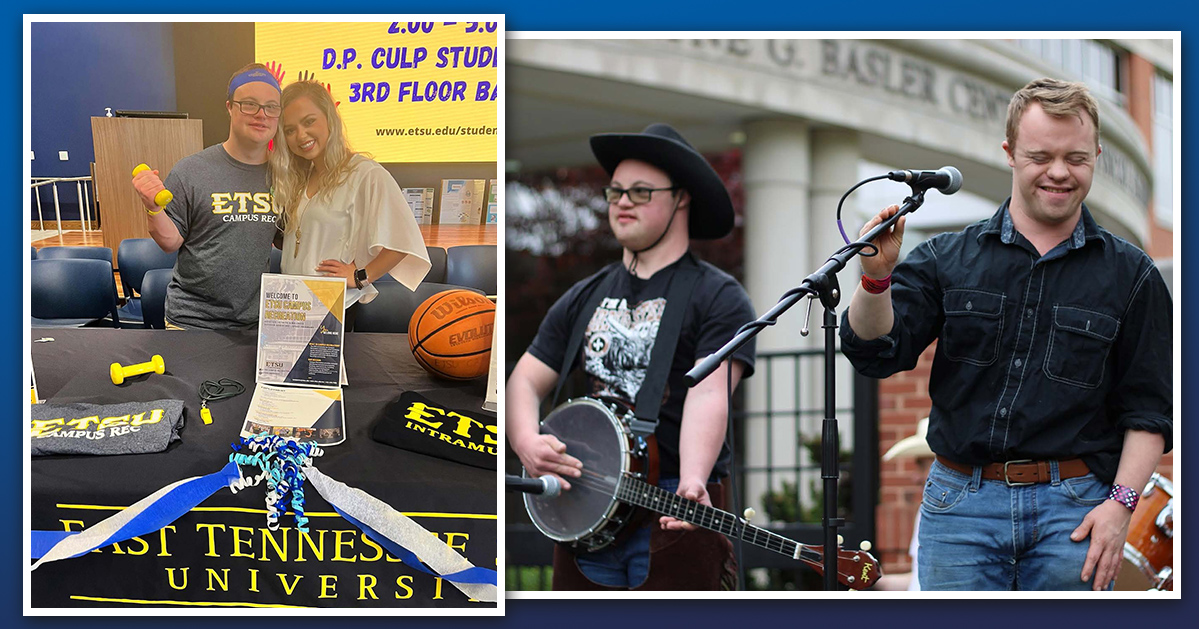
And it’s not just Access ETSU students who benefit through the program. Several campus recreation student staff members have volunteered their time to be involved as BucMates, a peer support role for Access ETSU students. “It is amazing to walk through the Basler Center for Physical Activity and see Access ETSU students working as employees, but to also be engaged in physical and social opportunities we provide,” says Kari. Even the student staff who do not volunteer in the formal BucMates capacity have been positively impacted by the involvement with the program. “We have had students share their desire to go into special education as a major or career path and many have shared what an impactful experience it has been to be able to work with this program,” she adds.
Looking to the future
Like it did with most university programs and initiatives, the coronavirus pandemic caused a fair few delays and interruptions to the launch of Access ETSU. But in October of 2020, Access ETSU was awarded a $2.5 million Transition and Postsecondary Programs for Students with Intellectual Disabilities (TPSID) grant from the U.S. Department of Education.
As life on campus has transitioned back to in-person instruction in 2021-2022, campus rec has been able to host employment opportunities for additional Access ETSU students. In Spring 2022, campus recreation also expanded to partner with Science Hill High School/Washington County Schools to provide a work-site location for a high school program that is focused on preparing students with disabilities for life after high school. This partnership has included students that will be a part of the Access ETSU program this upcoming fall. “Our hope,” says Kari, “is that as they transition from high school to ETSU that their employment with campus recreation will continue.”
This past term, Access ETSU students were paired with personal trainers to focus on their individual physical activity goals and growth–which was a great opportunity to focus on the individual wellness of the students. Campus recreation and Access ETSU continue to find new ways to collaborate across campus and work together on integrated approaches to health and wellbeing while also bringing into practice the university’s values of equity, diversity, and inclusion.
Campus recreation led the initial efforts for on-campus employment for Access ETSU. As the Access ETSU program continues to expand and welcome additional students, other departments on-campus have started to employ Access ETSU students based on their interests. Students and the campus community benefit from these opportunities thanks in part to the pioneering efforts of Kari and her team at ETSU campus recreation.
- For more information, contact Director of Campus Recreation, Kari Albarado .
- If you are interested in highlighting your campus or a NIRSA member’s achievements on your campus, pitch us your ideas.


